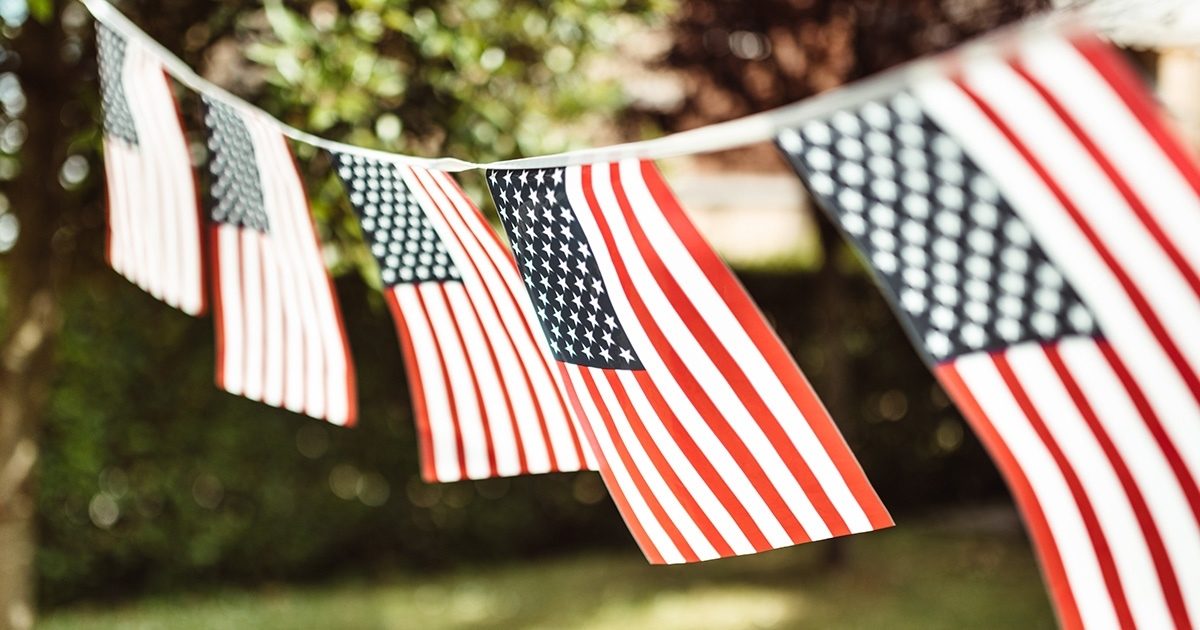Stay at the BBQ and Out of the Emergency Room This Fourth of July
Precautions you can take to keep you, your family, and your friends healthy and safe
Reviewed by: Jeffrey Saniuk, MSN, RN, FNP-C
Written by: Abbi Havens and Lily Vining

As the Fourth of July approaches, many look forward to backyard barbecues, American flag swim trunks, and dazzling firework displays. But with all the celebration comes increased risk. In fact, Independence Day is one of the most injury-prone holidays of the year.
Jeffrey Saniuk, MSN, APRN, FNP-C, licensed family nurse practitioner in UT Health Austin’s Primary Care Clinic, shares how to avoid common holiday-related injuries and make safety part of the celebration.
Choking
Hot dogs may be a patriotic party staple, but they’re also one of the most commonly choked-on foods in the U.S. This is largely due to their size and shape, which can block the airway.
“Choking is more common than you’d think, and it can become life-threatening fast,” says Saniuk. “Eating slowly and staying alert can make all the difference.”
To prevent choking:
- Take small bites and chew food thoroughly.
- Avoid eating quickly, especially when drinking alcohol.
If you’re alone and begin choking:
- Make a fist and place your thumb just below your ribcage and above your navel.
- Grasp your fist with your other hand and press inward and upward with quick thrusts.
You can also lean over a firm edge (like a table or chair) and thrust your upper abdomen against it to dislodge the obstruction.
Firework-Related Injuries
Fireworks and the Fourth of July go hand in hand. While they are a holiday staple, they result in thousands of emergency room visits each year. The most common injuries include damage to the hands, fingers, and face as well as vision and hearing.
“We see a lot of preventable injuries from fireworks, especially when alcohol is involved or instructions aren’t followed,” Saniuk shares. “Simple precautions go a long way.”
If you incorporate fireworks into your backyard celebration, follow these safety tips:
- Never point or throw fireworks at anyone.
- Back up immediately after lighting.
- Keep water or a hose nearby, and soak used fireworks before discarding.
- Don’t allow young children to handle fireworks.
- Never carry fireworks in your pocket.
- Avoid placing any body part over a firework when lighting.
- Never relight or pick up a “dud.”
- Confirm fireworks are legal in your area before using them.
Car Accidents
Independence Day brings an influx of cars on the road— and with it, an increase in serious and fatal car accidents. More than half of July 4th fatal crashes involve alcohol.
“Even short trips can turn dangerous,” Saniuk emphasizes. “If you’re impaired, call a ride. It’s not worth the risk.”
Water-Related Accidents
What better way to celebrate on a hot summer’s day than by cooling off in the pool, heading to the beach, or relaxing on a boat? While recreational water activities are a great way to beat the heat, they also bring serious risk.
These tips can help keep your celebration in the water and out of the emergency room:
- Designate a sober adult to supervise swimmers.
- Keep a close eye on children in and around water.
- Use appropriate safety gear, such as floatation devices and life rings.
- Always wear a life jacket when boating.
Boating adds its own set of hazards, including speeding, capsizing, distracted or inexperienced operators, and alcohol use.
“Boating under the influence is just as dangerous as drunk driving,” says Saniuk. “Just as you would designate a sober driver of a car, do the same when you are boating.”
Dehydration
Spending long hours in the sun, especially when consuming alcohol, can lead to rapid dehydration.
“Most adults should aim for at least three liters of water a day unless otherwise advised by their doctor,” Saniuk says. “In the summer heat, it’s even more important, as fluid demands increase above these daily requirements. Keep hydrated so your urine stays a light yellow color.”
Drink water consistently throughout the day, even if you don’t feel thirsty. Symptoms like dry mouth, dizziness, and fatigue are early warning signs that dehydration is setting in.
Know When to Seek Help
Most holiday-related injuries are preventable with a little planning and awareness. This Fourth of July, celebrate safely by following these tips and looking out for those around you. A great celebration doesn’t have to end in a hospital visit—but if something does go wrong, don’t wait to get help.
For more information about UT Health Austin’s Primary Care Clinic, call 1-833-UT-CARES (1-833-882-2737) or visit here.